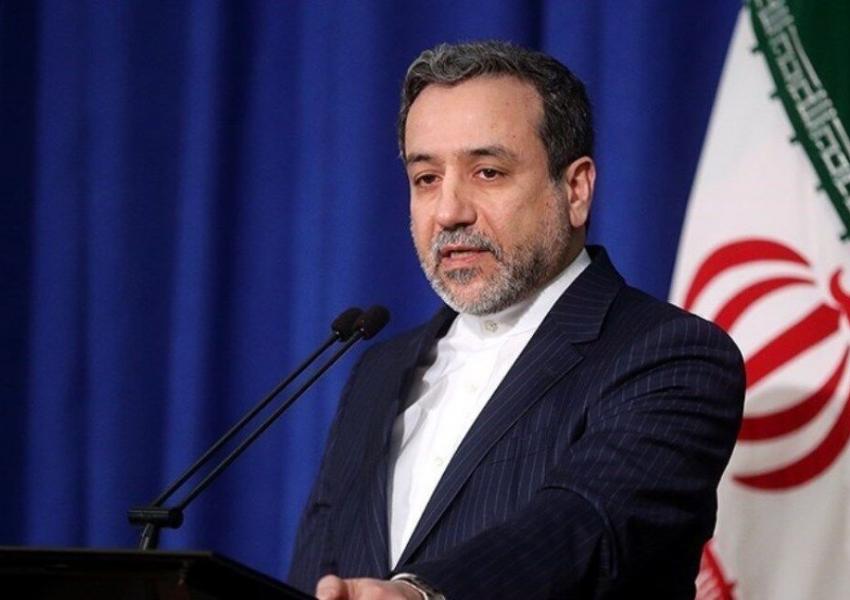
Iran Raises The Stakes, Saying It Will Enrich Uranium To 60%
Iran has decided to begin enriching uranium to 60 percent, the country’s chief nuclear negotiator and deputy foreign minister Abbas Araghchi told state media on Tuesday, a day after Tehran accused Israel of sabotaging its underground enrichment plant at Natanz.
Araghchi spoke on the eve of resumed talks in Vienna aimed at reviving Tehran's 2015 nuclear deal with major powers, the Joint Comprehensive Plan of Action (JCPOA), which President Donald Trump abandoned in 2018 before imposing stringent sanctions. The Israeli government opposes the JCPOA and has consistently threatened Iran’s nuclear facilities.
Hours later, Behruz Kamalvandi, spokesman of Iran's Atomic Energy Organization told local media and the 60 percent enrichment will start Tuesday night.
Iran began enriching uranium to 20 percent in January at its Fordow facility, the latest in a series of steps since 2019 beyond limits set by the JCPOA, which restricted enrichment to 3.67 percent. Iran’s Supreme Leader Ali Khamenei said in February that Iran would enrich to 60 percent as and when it chose. This will take Iran to a short distance from above 90 percent enrichment, needed to make nuclear bomb.
The Vienna talks, which began last week, were due to resume Wednesday, although Tasnim news agency reported this had been postponed to Thursday after a European delegate contracted Covid-19. Araghchi said informal meetings would begin Tuesday evening.
Press TV, the English-language service of state Iranian broadcasting, claimed 60 percent enrichment would begin Wednesday, and quoted Araghchi that an additional 1,000 centrifuges would be installed at Natanz – without clarifying if these were to replace ones put out of commission by Sunday’s blast. The International Atomic Energy Agency, the United Nations body that monitors Iran’s atomic program, said it had no comment.
Iranian officials have made conflicting claims about damage at Natanz, with Ali Reza Zakani, head of the Parliament Researcher Center, claiming a bomb had destroyed most of Iran’s enrichment capacity and left members of parliament “crying blood.”
The JCPOA aimed to set in Iran’s nuclear program a one-year ‘break out’ time, the period required to assemble a basic nuclear device. The break-out time – a function of the amount of enriched uranium held, its level of enrichment, and the number and efficiency of centrifuges working – has been squeezed with the steps Iran has taken since 2019. Weapons-grade uranium is enriched to 90 percent.
US President Joe Biden has said he wants to rejoin the JCPOA and so re-establish the limits on the Iranian nuclear program. But while his officials have insisted Tehran should reverse it nuclear steps before Washington lifts sanctions, Tehran has insisted that the US should first abandon all sanctions contravening the agreement.
Expert groups were last week charged in Vienna with identifying which steps by Iran, and which US sanctions, contravene the JCPOA. There is no agreement on how to sequence the two, while the Natanz attack has raised temperatures, and perhaps the stakes, all round.





